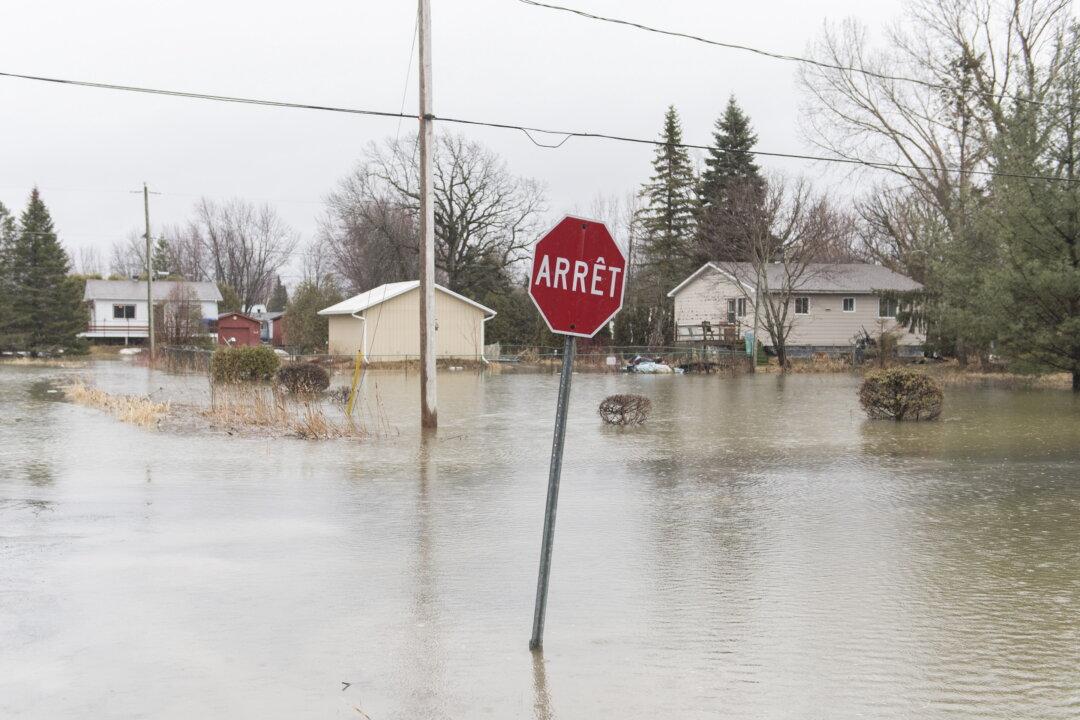MONTREAL—Canadian Armed Forces are deploying in three regions across Quebec, officials say, as rising water levels continue to wreak havoc on the province after claiming a life.
About 200 soldiers were poised to start filling sandbags and carrying out evacuations in the Outaouais and Mauricie regions Saturday night, with 400 more troops set to deploy there as well as Laval on Sunday, said Brig.-Gen. Jennie Carignan.





